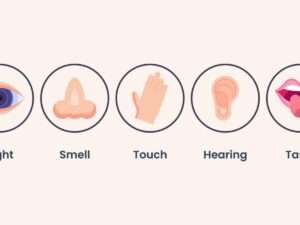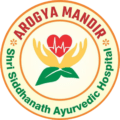Sense Organ Defect

Ayurveda, the ancient system of medicine originating from India, holds a profound understanding of the human body and its interconnectedness with nature. One of the key aspects Ayurveda emphasizes is the role of sense organs in maintaining overall health and well-being. In this article, we’ll delve into the Ayurvedic perception of sense organ defects, exploring the causes, identification, treatment approaches, preventive measures, and the integration of Ayurveda with modern medicine.
Introduction
Ayurveda, often referred to as the “science of life,” views the human body as a dynamic system where balance is crucial for optimal functioning. Sense organs, including eyes, ears, nose, tongue, and skin, play a pivotal role in this delicate equilibrium. Ayurveda believes that imbalances in the sense organs can lead to various health issues, and understanding and addressing these imbalances are central to Ayurvedic treatments.
Ayurvedic Perspective on Sense Organs
In the aging process, Vata dosha tends to dominate, leading to a reduction in the power of sense organs. While it is challenging to delve into every aspect of each sense organ disease, Ayurveda has the capability to address various conditions related to the sense organs. Understanding the functioning of the sense organs through the Ayurvedic concept reveals a complex interplay.
The five sense organs—Eyes (Netra), Tongue (Jivha), Nose (Nasa), Skin (Sparsha), and Ears (Karna)—act as receptors that receive stimuli from the external environment. These stimuli are then transformed into senses in the brain, where each sense organ corresponds to a specific area in the brain. Senses unfold the received stimuli, conveying the information to the mind, which in turn relays it to the soul. The soul comprehends the information, and the mind makes decisions regarding responses or storage of information.
Defects in the senses can arise from three main causes: improper use of the senses, minimal use of the senses, and excessive use of the senses. The defect can be in the sense organ itself or in the corresponding area of the brain. Identifying such defects is crucial, as gradual reduction in senses may go unnoticed.
Causes of Sense Organ Defects
Defects in the senses can arise from three main causes: improper use of the senses, minimal use of the senses, and excessive use of the senses. The defect can be in the sense organ itself or in the corresponding area of the brain. Identifying such defects is crucial, as gradual reduction in senses may go unnoticed.
There are various factors which lead to gradual reduction of senses like unhealthy lifestyles, improper diets, and exposure to pollutants can disrupt the balance of doshas, leading to defects in the sense organs. Understanding these causes is essential for effective Ayurvedic interventions.
Diagnosis of Sense Organ Defects
Ayurvedic investigations involve various examinations, including Ashtavidha Parikshan, Indriya Parikshan, and Satva Parikshan. The Trividha Parikshan, comprising Darshan (observation), Sparshan (touch), and Prashna (questioning), helps in understanding the current and past pathologies related to each sense.
Ayurvedic Treatment Approaches
Treatment in Ayurveda for maintaining the health of the senses involves Nasya therapy, specifically Pratimarsha Nasya. This daily therapy entails the administration of two drops of a specific oil into each nasal cavity, stimulating the crucial Shringataka Marma point in the nasal cavity. This process takes only about five minutes and contributes to the freshness and activity of all senses, lubricates the brain, and promotes good mental health. Marma Abhyanga is another therapeutic measure to maintain the health of sense organs, ensuring their vitality and reducing the likelihood of disorders.
Additional therapies include Aroma Therapy, Karna Puran (especially for the ears), and specific treatments like Netra Tarpan and Anjan (especially for the eyes), each contributing to the overall well-being of the senses. These Ayurvedic interventions aim to address existing disorders, prevent future issues, and support the longevity and functionality of the sense organs.Ayurvedic treatments for sense organ defects focus on restoring doshic balance through natural remedies. Herbal formulations, Panchakarma therapies, and practices like Netra Tarpana (eye rejuvenation) and Nasya (nasal administration) are integral parts of Ayurvedic interventions. These approaches aim not only to alleviate symptoms but also to address the root cause of the imbalances.
FAQs
Ayurveda is a holistic system that addresses both specific health conditions and promotes overall well-being. Its personalized approach considers individual constitution, making it suitable for various health goals.
The timeline for results varies based on the severity of the condition and individual factors. Some individuals may experience improvements within weeks, while others may require longer treatment durations.
Ayurvedic treatments are generally safe for all age groups. However, it’s essential to consult with a qualified Ayurvedic practitioner to tailor treatments to individual needs, especially for children and the elderly.
Ayurveda offers practical guidelines for daily routines and dietary choices that can be adapted to modern lifestyles. Small changes, such as mindful eating and stress management, can have a significant impact on overall well-being.
Uniqueness of our therapies
At Arogya Mandir – Shri Siddhanath Ayurvedic Hospital, Miraj, we delve deeply into the ayurvedic examination of each patient. Utilizing noninvasive Ayurvedic diagnostic tools such as Ashtavidha Parikshan and Nadi Parikshan, we precisely determine the pathogenesis of the disease and then prescribe therapies tailored to the specific condition. This approach leads to expedited results.
Our therapies boast the following distinctive features:
– Tranquil and hygienic therapy rooms staffed with trained therapists in a positive environment.
– Selection of appropriate massage oil based on the patient’s Prakruti and the condition of the disease.
– Complimentary Prakruti and Dhatu Sarata examinations before the commencement of therapies.
– Authenticated procedures for each therapy.
– Judicious use of herbal medicines and instruments during the therapy sessions.
– Specialized rooms equipped with all facilities for inpatient care.
Feel free to share this article at no cost.
Copyright message – Dr. Prashant Chivate has published this article on drchivateayurved.org for informational purposes about diseases. Any other use of this article is strictly prohibited. All rights reserved.
